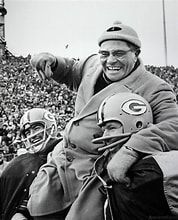Thursday's Columns
October 30, 2025
Letters to the Editor
Response to last week's
"Our Story" column
about entropy
from
Dr. Jerry Gilbert
Clinical Psychologist
Denver, Colorado

Dr. Gilbert
Dear Editor:
Thank you for the interesting article in last week’s (10-23-25) Thursday’s Columns. It is truly an example of “boldly going where no one has gone before” and again exhibits your ace reporter’s wide range of knowledge. It is also an article that fits with areas that have intrigued me for several decades. Please allow me to comment.
On a cosmological level, we don’t know that entropy ends in a perfect balance. Also, it isn’t clear that anything dies—as in a complete & total end. It is just as likely that “cosmological death” is a convenient way of referring to a dramatic change in the nature of energy, resulting in a change in cosmological entities. I believe that our universe (and there may be many) transitioned from a previous entity that condensed into a very small & dense entity with built-in “instructions”. The trigger for “banging” is still unknown. The prevailing cosmological position is that our universe is constantly expanding with no end in sight. At this level, there is no pervasive entropy. If we focus on inflation theory, then yes, the rate of inflation has slowed, but only relatively.
It seems contradictory that while our universe is constantly expanding, there is also a cohesive gravitational pattern that seems to organize and condense matter and energy into stars and galaxies. (We have to keep in mind that we are only capable of a human’s-eye view). It also seems contradictory that while there is a constant birth of new stars, old stars collapse, explode, or implode. We don’t know that a universe undergoes a cycle of a “Big Bang” followed by a “Big Crunch.” Such a concept can be likened to the belief in reincarnation. It makes more sense to me to talk about cosmological states or phases of transition, with a subsequent phase seeming to bear no resemblance to a previous one, unless we can reduce the transition to a common language, such as the dynamics of energy.
I think it may be worthwhile to use cosmological entropy/negentropy as a metaphor for social change or transition. Then, in part, we are talking about scouring for evidence of inefficiency and seeking ways of becoming more efficient in our systems and how we solve problems. There are people who get paid big bucks to accomplish this, including on personal and social levels. (Guru anyone?) Perhaps social change begins with personal dissatisfaction and asking questions about how to become more satisfied, functional, or successful. Sometimes, it takes an outside observer to identify inefficiency and suggest ways to improve.
Change can range along a continuum of beneficial to detrimental. Life experiences provide feedback, if we know where to look.
“So let it be written, so let it be done.”
--30--
from
Mike Gauthier
Our Ace Reporter's Younger Brother
Iron Mountain, Michigan (in 'da U.P.)

You misspelled entropy, Mike
--30--
Our
Story
by
Lawrence Abby Gauthier
ace reporter
The Westphalia Periodic News

The Lombardi Years
Culley Jane is always up before me in the morning. She’s got the coffee going and is scanning that day’s edition of the Denver Post.
It was last Sunday, October 25, 2025. I can’t believe I’m still around in 2025.
“What’s going on?” I ask her.
“Two stories on the front page,” she says. “Deportations. Rare Earths.”
She knows I’m closely following both of those stories. We have Venezuelan friends here in the Denver area. And China has what we need to achieve our next big technological leap but won’t let us have any of it if we're going to use it to kill people now that we have a War Department instead of Defense.
She opens to an inside page. The American government is positioning war ships and an aircraft carrier off the coast of Venezuela. I imagine the armada’s guidance systems alone require lots of rare earths from China to locate and destroy suspicious warehouses in poor neighborhoods.
“Maybe China’s acting in our own best interest, and we just don’t know it,” I say, cryptically. “I’ve been reading about China. They helped us build the Transcontinental Railroad. That’s what the Confucians say to do. And Jesus too and it’s in the Peace of Westphalia… do onto others.”
“Maybe you should write your column about it this week.”
“Maybe,” I said, but I had something else on my mind.
I was thinking about Vince Lombardi.
I told Culley Jane about it and she said what seemed to me like a most amazing thing: “I’ve heard of him, but I don’t know anything about him.”
I asked her how that was possible. I thought to myself, how could somebody not know all about Vince Lombardi, like not knowing about George Washington or that we'd gone to the moon? My wife, the retired French professor and head of Westphalia’s language department, responded: “Have you ever heard of Diderot?”
“Ahh… maybe… kind of, in college?”
“Do you know anything about him?”
“Umm, no.”
I told her that Lombardi coached the Green Bay Packers from 1959 to 1967 and that there’s a rest stop/oasis on the New Jersey Turnpike named for him.
I explained that Lombardi said it wasn’t all about winning. He said it was about doing your best. If you weren’t doing your best, he didn’t want you around. You had to have faith that he knew what he was talking about; that he knew what your best was even before you did. Children want to live up to expectations.
Lombardi was like part of our family growing up in what came to be known as the “Lombardi Years.” He had a half-hour television show every week on WLUC TV in Green Bay. We lived a hundred miles north of Green Bay in a small town at the edge of the woods. Before we got hooked up to cable, Dad configured the aluminum antenna on top of the house to get the signal. We’d all gather around the 16-inch black-and-white Magnavox. One of Dad’s buddies from the factory was usually there, and other kids from the neighborhood. Mom made popcorn, apple slices and carrot sticks. When Lombardi came on, it was like having the priest over for dinner. You’d hang onto his every word. He was saying that even if you were from a little out-of-the-way place way up north, there was no good reason why you couldn’t be on the same field with teams from the big cities — New York, Chicago — so long as you did your best.
Of course, we never missed a Sunday game all glued to the television screen, except for the couple of times that Dad drove us to see a game in person from the stands of Lambeau Field. The highway to Green Bay was still just two narrow lanes back then, trekking through miles of thick woods and through all the small towns and then being there, in the stands, experiencing a dream world come to life.
Awestruck, I saw Lombardi run onto the field in his wrinkled gray topcoat and hat, followed by the team. I can’t remember my computer passwords, but to this day I can rattle off the position and name of every player in his starting lineups. They were real. They belonged on the field, and could beat any team from the big cities, just as long as they didn’t worry about the final score and focused on doing their best.
That’s why I’ve always been a Packer fan.
So, last Sunday, after remembering that it was Sunday and hearing about the geopolitical situation, I remembered that the Packers were playing the Steelers that night in Pittsburg for the Sunday Night Game.
Anybody who follows football, even slightly more than Culley Jane, was expecting something special. All eyes would be on the two quarterbacks. The game would be on every big screen tv in every sports bar from Miami to Portland, the reenactment of a classic tale — an aging legend up against the kid he’d groomed and mentored to one day take his place. Had that day arrived?
The Steelers quarterback, Aaron Rogers, had been Green Bay’s quarterback for years, a Super Bowl winner, a future Hall of Famer. He’s thrown more touchdown passes than any other quarterback in NFL history. A franchise player, but as he got older everybody could see that he’d lost a step and that maybe he couldn’t see for himself, or want to. Anyway, he wasn’t the same anymore and so he was traded and wound up with the Steelers and was succeeded by his backup, the kid, Jordan Love, who had been learning from the legend ever since joining the team out of college a couple years before.
“The Packers are playing the Steelers tonight,” I said to Culley Jane, who was on her iPhone looking at weather reports in order to decide if she should take an afternoon hike over on Hidden Mesa in the foothills. Snow would soon be coming down off the mountains.
“I’m pulling for the Steelers,” I said, which caught her attention because the one thing she knows for sure about football is that I always pull for the Packers. “But I’m pulling for the Packers, too,” I added.
“Can you do that?”
“I think so. I can want what’s in China’s best interest, too.”
